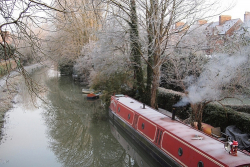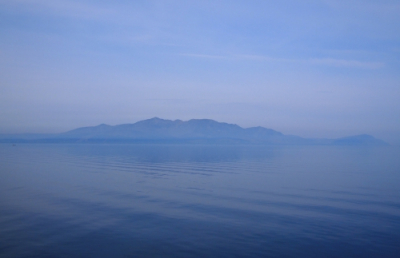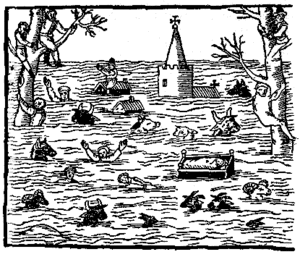The Islanders
Hydromancy is the school of magic relating to all things aqueous. Rivers, seas, icebergs and even clouds of superheated steam are among a Hydromancer's favourite tools (or possibly friends when considering river spirits and the like). Hydromancers can also specialise in visual illusions based on refraction through water, or in the soothing, healing properties of life's most crucial component.
Information on the magic of Hydromancy itself can be found here.
Physical Location and Organisation
Given their natural affinity for large bodies of water, the majority of Hydromancers tend to be found around the coastline of the UK, with a particularly high concentration in the islands of the north-west. This is where their informal title of the 'Islanders' comes from, used by both themselves and others. (To them, it's a badge of honour, reflecting their individuality and independence. To those from other schools, it signifies their slight… oddness.) Unlike most of the other schools of magic, Hydromancers do not have an official organisation acting as an interface to the Norm world. This works fairly well, as most practitioners of this magic are quite solitary, finding better comfort in waterfalls and waves than they do in their fellow humans. Family groups often stay close together, but there is no larger organisation of their society above that.
A smaller number of Hydromancers may be found living along the larger inland waterways, such as the Severn or the Thames, focusing on river spirits, erosion and flooding. These groups are looked at somewhat askance by everyone else who sees the vast oceans as their natural habitat. (It's even rumoured some of them live on canal barges, for goodness' sake.)
Ties between groups are friendly, if distant, and schooling of children is undertaken by identifying someone within the network who has the skills they wish to develop, and sending the child there as an apprentice. Often this will be a distant relation if they wish to continue a tradition of some family magic or other, but sometimes the word will go out that some rumoured hermit in the Western Isles is being sought to teach a child who shows a particular affinity for freak waves and whirlpools…
People of Note
Chief among the leaders that the Islanders don't have is Ruaraidh MacDoddigan, the senior father-figure of the numerous MacDoddigan clan on the Isle of Mull. A stern-faced man of middle years, Ruaraidh is known to be highly skilled at Alteration, controlling waves and tides around his corner of the Western Isles as it pleases him. He is perhaps not well-liked due to his severe nature, but is well-respected nonetheless. His daughter Eilidh MacDoddigan is an up-and-coming young firebrand (or the watery equivalent), angrily declaiming the role of The Hammer in keeping Wytches subservient for centuries.
More often seen in public, particularly in the south-east, is Lisa Vestris, renowned potions-maker and social butterfly. Having made her name selling reasonably-priced and mostly-reliable water magic potions through Diablo Magic Supplies in the 1970s and 80s, she now has sufficient cachet to command higher prices for special commissions, which it's rumoured she spends most of her time on these days.
Attitude to Outsiders
Given that Hydromancer society has no real structure anyway, the Islanders are pretty tolerant towards those from other schools who also seek solitude (and a more laissez-faire attitude to organisation). If a solo Aeromancer moved into an isolated valley just over the hills from a Hydromancer family, they might pop round after a month or so and invite him over for tea, but would happily respect his wishes to be left alone - unless, of course, he diverted all the rain clouds in the area away and dried up their streams…
Background
 Hydromancy is one of the most misrepresented and misunderstood forms of magic in Norm culture, and has been for centuries. It is usually seen in works of imaginative Norm fiction as evil potions, brewed in giant cauldrons, which can be used undetected and can do pretty much anything. In reality, Hydromancy is both less and more than this. Potions can be created by a Wytch of any school with enchantment ability, although traditionally they were a water-based way for Hydromancers to carry spells around. On the other hand, water's versatility in its three natural states allows Hydromancers to practise all sorts of magic that Norms might not expect, including illusion, water-based healing and, at the highest levels, control over large bodies of water commonly found all over the British landscape.
Hydromancy is one of the most misrepresented and misunderstood forms of magic in Norm culture, and has been for centuries. It is usually seen in works of imaginative Norm fiction as evil potions, brewed in giant cauldrons, which can be used undetected and can do pretty much anything. In reality, Hydromancy is both less and more than this. Potions can be created by a Wytch of any school with enchantment ability, although traditionally they were a water-based way for Hydromancers to carry spells around. On the other hand, water's versatility in its three natural states allows Hydromancers to practise all sorts of magic that Norms might not expect, including illusion, water-based healing and, at the highest levels, control over large bodies of water commonly found all over the British landscape.
Of course, as with all forms of magic, there are also applications that inevitably appeal to the school-age population, such as summoning water sprites to inhabit someone's toilet and surprise them at inopportune moments, or the classic 'ice shards dropped down your friends' shirts' form of playground fun. Most adult Hydromancers like to think of themselves as a little more subtle than that, though.
History
Due to their fragmented society, the Islanders do not have full records of their history - some families will have one or two texts that shed light on earlier years, but nowhere is there a comprehensive library of records as may be found at the likes of Bedivere Hall. Hydromancers suffered more grievously than other schools in the period of the Witch Trials, since anyone making any sort of potion (and, indeed, some people who were just making soup) came under instant suspicion. It also didn't help that Hydromancers had so fully integrated within their local communities in earlier centuries. While most Hydromancers would always choose to be a little solitary and live apart from daily human contact, their magics of potions, illusion and healing were once highly valued by the Norms amongst whom they lived. As a result, many Hydromancers ended up living on their own slightly removed from village society, and slightly distrusted by it - not the ideal position to be in when the hunts started. In addition, the learning of magics helpful to Norms meant many Hydromancers of the time had no particular defensive skills. Those in the north who were condemned to a fiery death could certainly put out the flames, but often had no ability to escape beyond that point - and an angry mob can always find other weapons - while those in the south were hanged to death with no ability to fight back. Many were lost, and the scars that this period of history have left on the magical society of the UK are most strongly felt amongst Hydromancers.
Since this time, the society has split and scattered widely. Once the intense focus of the 16th and 17th century witch trials had died down, most Hydromancers found that they could blend into the background of Norm society quite easily. Particularly with an age of Reason and Science in the ascendancy, the ability of healing potions to create Infallible Nostrums which were actually infallible became quite lucrative. (A small number of Hydromancers sell apparently unproven 'patent cures' on the internet to this day.) Whilst many individuals and families still believe in serving a local community, as a rule they have abandoned the populated areas where once they helped so many, but where The Hammer now interfere in all magic users' lives. Of course, The Hammer is hardly popular in any school, but it would be a rare Hydromancer indeed who would choose a life in close contact with them. Instead, most live on the fringes of modern British society, quite literally - on the coastline or the islands, in remote glens or boggy moorland. Happily, those are areas where Hydromancers naturally feel at home thanks to the ubiquity of water, and so most live happily settled lives. Communities of particular note over the last few centuries are mostly extended families, such as the MacDoideagans of Mull or the Brujons of Sark. Some groups of Hydromancers are slowly edging back towards urban living, but they are still the exception so far.
Possibly due to their troubled history, most Hydromancers live their lives firmly in the present, There are still rumours and legends of great Hydromancers of the past, and some places such as Lindisfarne, Anglesey and Iona are still spoken of in hushed tones, in reverence of the great magics which once were wrought there, but it is feared the details of these glory days are now lost forever.


